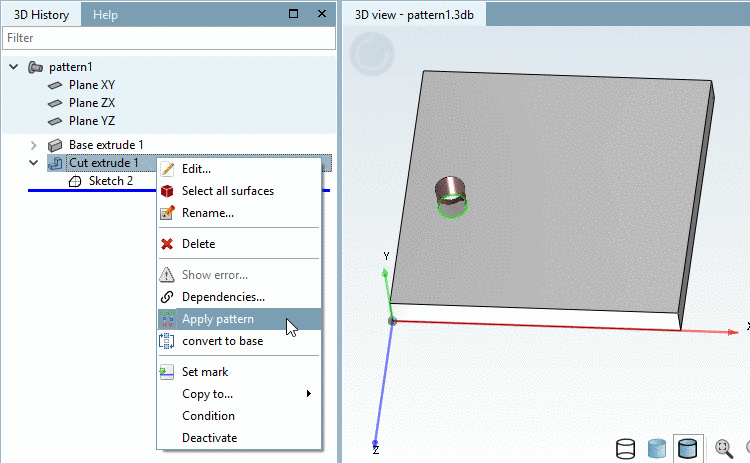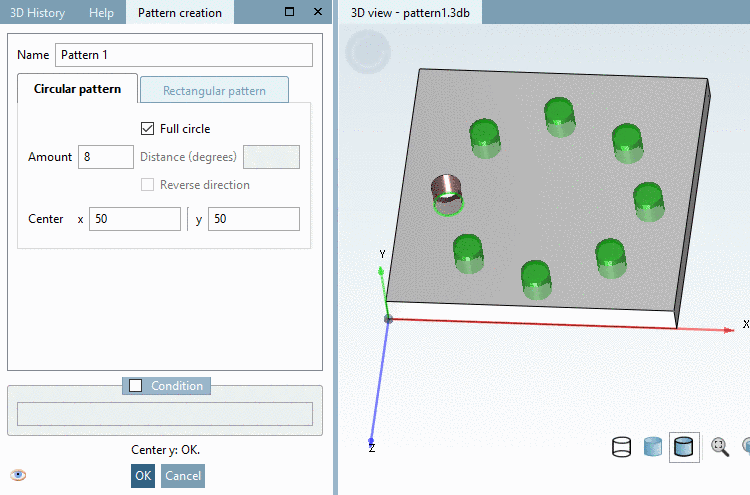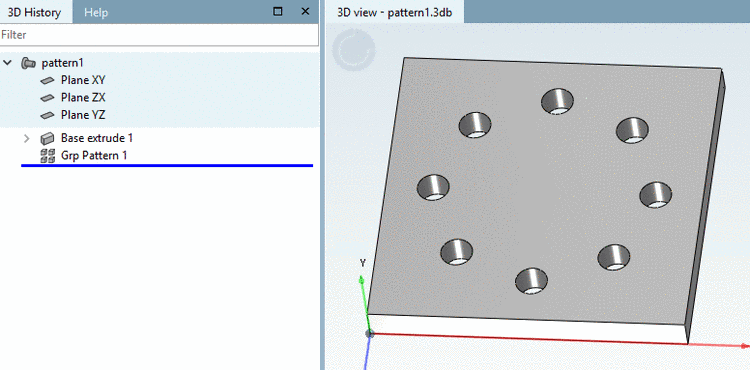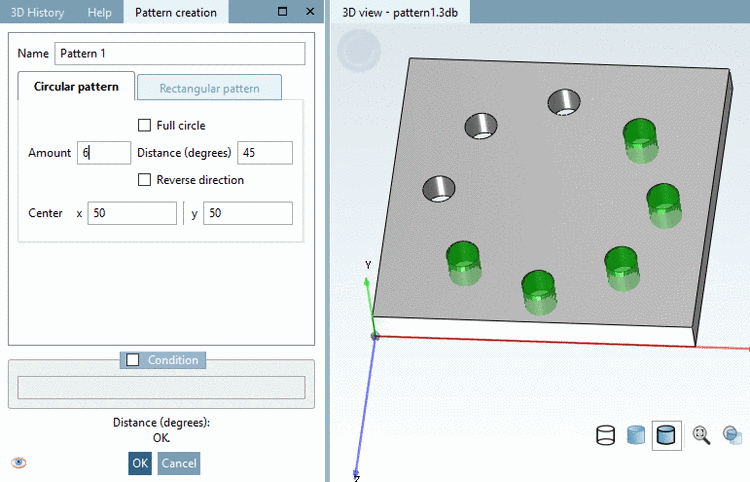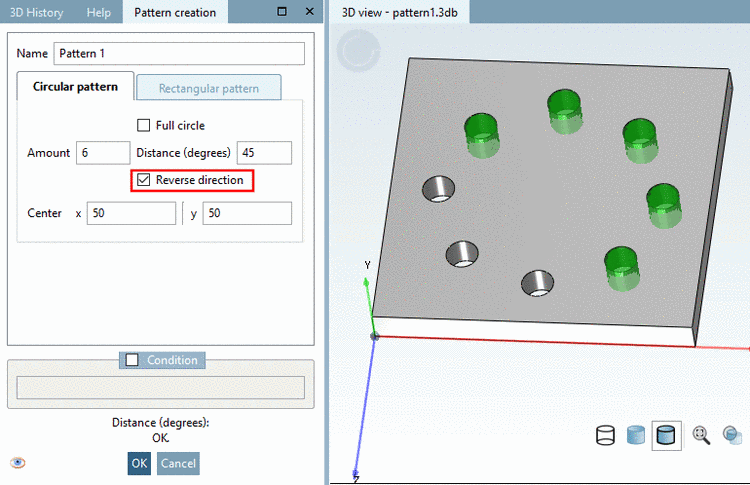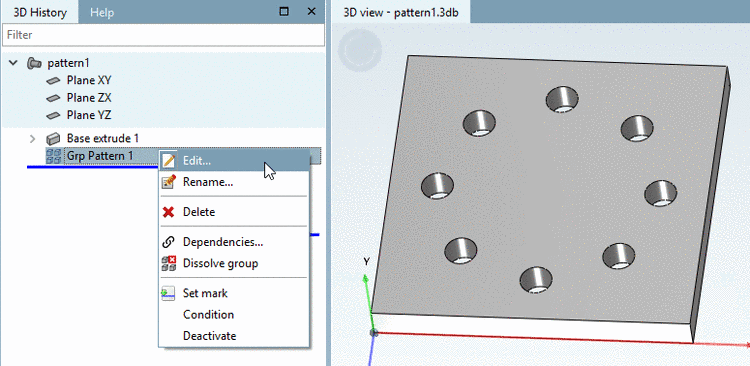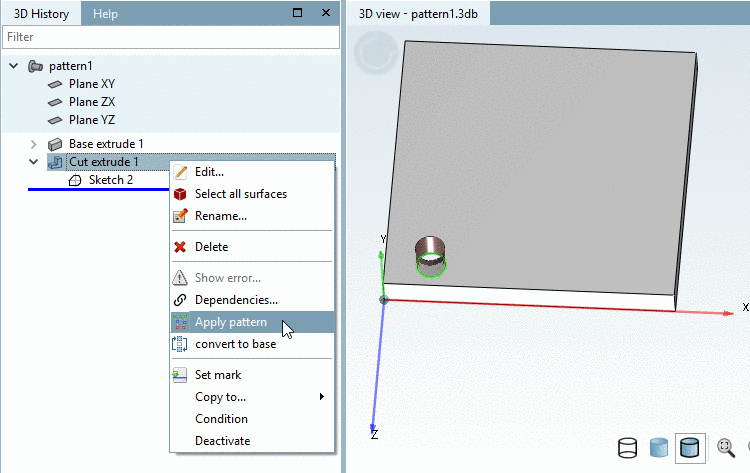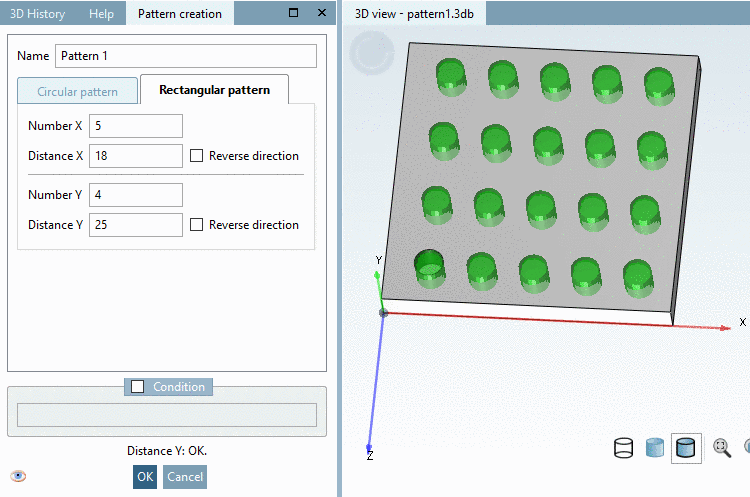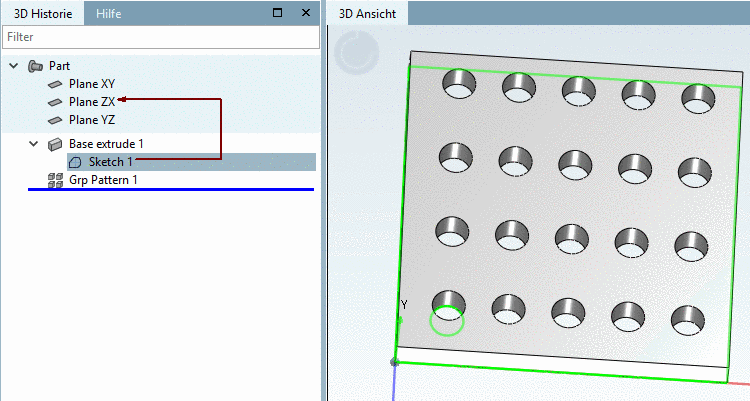The pattern wizard allows to easily create, edit and delete a Circular Pattern or Rectangular pattern. Also it is compatible to older versions since no new features are used.
Calling happens under Base extrude or Cut extrude via context menu command Apply pattern.
Select the pattern's base element (here "Cut extrude 1") and click on the context menu command Apply pattern.
Determine the Center fitting to the base element.
Determine the Amount of pattern elements.
By default, a full circle is created.
Also you can disable the option Full circle, under Distance (degrees), determine the angle between two elements (which is 45° in a circle of 8 elements) and reduce the amount of elements.
Furthermore you can enable Reverse direction.
-> The circular pattern is displayed in the 3D History, under Grp Pattern.
In order to edit an already existing pattern again, select Grp Pattern and click Edit....
Select the pattern's base element (here "Cut extrude 1") and click the context menu command Apply pattern.
Under Number X, determine the number of patten elements in the direction of X.
Under Distance X, determine the distance of patten elements in the direction of X.
Under Number Y, determine the number of patten elements in the direction of Y.
Under Distance Y, determine the distance of patten elements in the direction of Y.
With Reverse direction the elements are arranged in opposite axial direction.
-> The rectangular pattern is displayed in the 3D History, under Grp Pattern.


